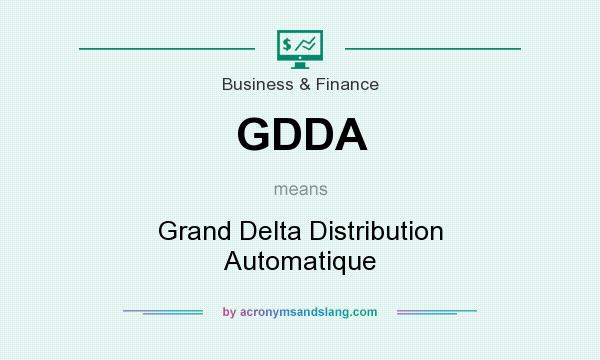" I would recommend that, if possible, don't place pressure on yourself to be rewarding instantly because some kinds of organization, such as blogging, are a long game. Overall, my advice is to do your finest, react to feedback from your audience, and pivot your material or product appropriately." This post was originally published on.
Although we all use our checking account daily, the majority of us may not know how banks really work. With examining accounts that pay you interest and totally free ATM services, how do banks make cash? Well, you much better believe banks are a business and revenue is their leading concern. Let's enter it! Generally, banks do not make a profit until they have your money, so drawing in and keeping clients is key for banking organizations.
Like any company, banks have costs and revenue streams that they tactically leverage in order to grow. Banks are understood for charging charges or repeating costs to account holders, but the main method they generate income is through loans. Below are the main methods in which banks make cash. When you deposit your money in a savings account, the bank uses that cash to make loans to other individuals and businesses to whom they charge interest - how to make money in finance and felony.
However, they collect more interest on the loans they release to aside from the amount of interest they pay to account holders like you. This, in turn, makes them a profit. For example, your standard bank account may make you 1% each month, however the bank is utilizing those funds (pooled together with lots of other accounts') to issue home loans at 4%, student loans at 12%, and charge card at 20%.
Big banks can make more than $50 billion each year on interest alone and comparable amounts on other services and items. By providing you cents monthly, the banking institution is making millions. Another way banks make money is through routine or case-by-case charges. These might include: which are generally charged to your account monthly just for being open.
How How Much Money Does A Bachelors In Finance Make Compared To A Masters can Save You Time, Stress, and Money.
for not utilizing your account frequently enough. Be sure to look into this prior to opening an account you plan to hardly ever utilize. when you invest more than you have in your account. You can prevent these by remaining on top of your spending plan. from cost savings accounts, which have regular monthly caps mandated by the federal government.


if you decide not to get online declarations. Going paperless is more ecologically friendly, easier to track, and effective anyhow, so certainly consider this alternative. for lost or stolen debit cards. if you use certain ATMs beyond your bank's network. if you deposit somebody else's bad check, even if you do so unknowingly.
While swiping your debit or credit card is usually totally free to you, a deal or processing charge called interchange is normally created. This fee is charged by your bank to the merchant's bank (merchant being the store where you made the purchase) as a portion of your deal. The merchant's bank then subtracts this fee and their own processing cost, from the cost of your purchase.
While doing so, the banking parties involved generate income from costs that the cafe has to pay. This is why often you'll see minimum purchase requirements in certain shops, as these fees can build up quickly. Similar to any other company, banks likewise have their share of expenditures they need to pay to keep things running.
These expenses consist of basic operational costs like employee wages and advantages, devices and IT, rent, taxes, and expert services like marketing. On the other hand, banks also have "interest expenses," which are the cost of interest on loans they secure, similar to you pay when you get a loan.
The Facts About How Much Money Can You Make From M1 Finance Revealed
When you deposit money in your savings account, you're paying an "chance expense". This means, instead of investing that cash yourself, you're permitting the bank to make a profit utilizing your cash. In exchange, you'll get a protected location to keep your cash and you'll make an extremely small interest percentage.
When you do this, you can figure out how much to put in the bank and just how much to invest in other places. Here are some essential things to try to find in a bank. The first thing you need to search for in a bank is that it's guaranteed by the FDIC. If it is, that indicates you're covered for losses of at least $250,000 if the bank fails.
Evaluate whether the fees apply to you, if the costs deserve it in exchange for any benefits, and if there's a way to waive or avoid the charges. Consider this: An $8 regular monthly maintenance charge over the course of 5 years is practically $500. If you think that $500 could be better invested or invested, make your options appropriately (how to make money with owner finance).
You're not confined to the closest or best-known bank. While it may be beneficial to ask around, do your own research due to the fact that many individuals select a bank out of benefit, rather than digging into all the elements at play. There are many alternatives that each have their own advantages and disadvantages.
While their customer care might have extended hours, it may also be less personal because of the volume of customers they deal with day-to-day. You are a lot more likely to have account costs with these larger banks. These community-focused banks may do more to return and stimulate the regional economy - how much money can finance degree make per hour.
The Definitive Guide to How To Make Quixk Money In A Day Google Finance
Their services might be limited compared to their larger rivals, and if you travel typically, you might miss out on the benefit of significant places. Very comparable to local banks in service, credit unions have a not-for-profit structure and are owned by the clients. (Standard banks are investor-owned.) This indicates you end up being a partial owner when you open a credit union account and deposit money.
However, these smaller sized institutions have less reach than the big names in banking. Having actually dropped the brick-and-mortar, online banks run entirely on the webthis is both an advantages and disadvantage depending upon your relationship with innovation. Online banking is frequently complimentary and might even pay greater interest rates on accounts than traditional banks.
Some huge banks do provide electronic banking, so this might be a hybrid option for you. The good news is, there are lots of options out there to help you handle your cash. The tricky part is determining which is the finest fit. Don't be afraid to look around before committing.
" Make your money work for you" https://www.openlearning.com/u/seegmiller-qfirp6/blog/TheSingleStrategyToUseForWhatIsThePurposeOfADerivativeInFinance/ is such typical individual financing advice that it verges on being clich. But what does it really suggest? And more notably, how can you do it?There's no basic answer or a single method to do it. In fact, almost everybody can find a minimum of one way to put their money to work.